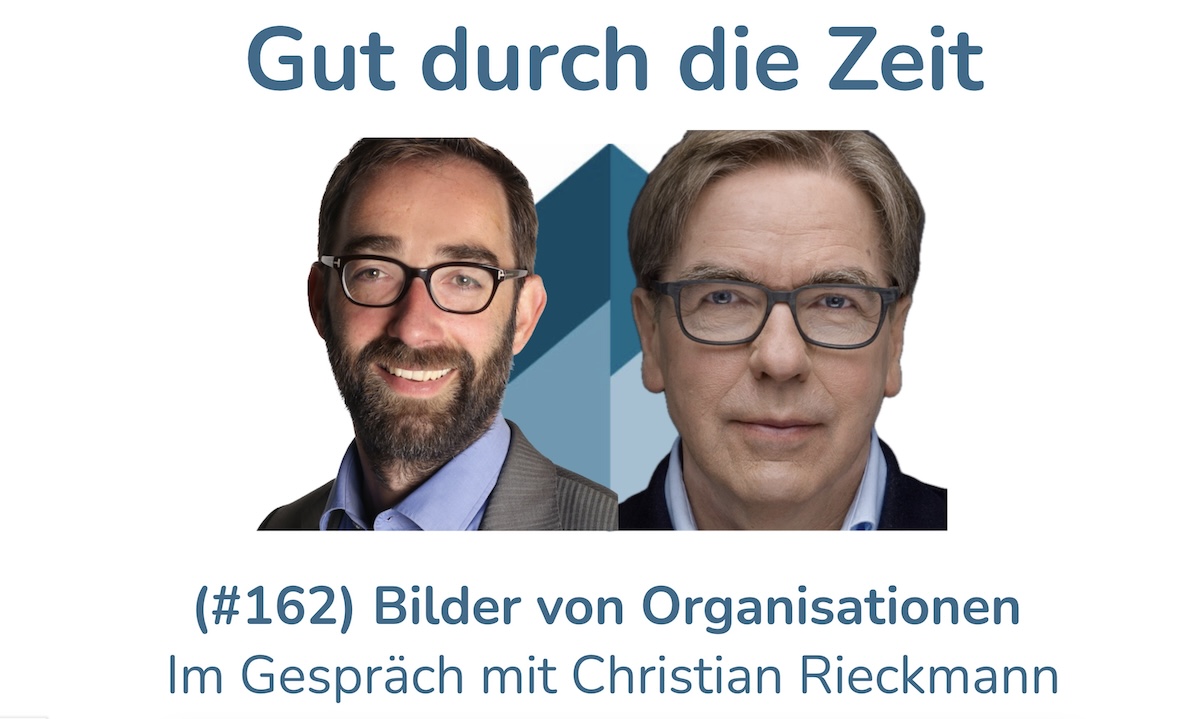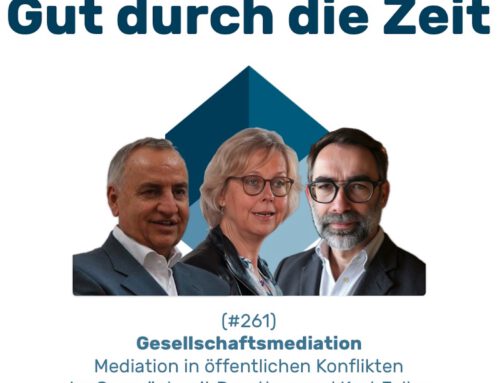INKOVEMA Podcast „Well through time“
#162 – Images of organisations
Different mental images of organisations according to Gareth Morgan. In conversation with Christian Rieckmann
Well through time. The podcast about mediation, conflict coaching and organisational consulting.
Christian Rieckmann, Educationalist by training, organisational consultant, coach, management trainer and facilitator for 30 years. Lecturer in organisational consulting at the University of Kassel until 2024.
Contents:
Gareth Morgan offers an in-depth analysis of various metaphors and mental images that people use to describe and understand organisations.
Organisations are not seen as physical entities, but as Idea constructs that arise and exist through human communication and cooperation. They transcend the boundaries of individual members, legal structures and physical resources. Morgan emphasises that organisations can be seen as creative human inventions that require a variety of perspectives and metaphors to fully understand their complexity and dynamics.
Gareth Morgan is an influential thinker in organisational theory, not least because of this publication from 1986. Even at that time, he was already describing the possibilities of
- as a machine,
- as an organism,
- as a brain,
- as culture,
- as a political system,
- as a mental prison,
- as a fluid and changeable entity, and
- as an instrument of power.
Each metaphor highlights certain aspects of organisations, while others are hidden, which underlines the importance and necessity of a multifaceted approach.
The contents are only briefly outlined here:
- MachineEmphasises the efficiency and structuring of work processes, but ignores adaptability and the human dimension.
- OrganismEmphasises the adaptability and diversity of organisations, but neglects the fact that organisations are social constructs.
- BrainFocuses on learning ability and self-organisation, but ignores the limitations of power structures.
- CultureExplores the meaning of rituals and symbols, but overlooks the possibility of rational organisation.
- Political systemDiscusses the processing of interests and power games, but fails to recognise the inherent neutrality of politics in organisations.
- Psychological prisonReflects on the self-limiting aspects of organisations, but ignores the role of organisations in growth and development.
- Flow and changeEmphasises constant change and development, but underestimates the importance of stability and tradition.
- Instrument of power: Highlights the role of organisations in the context of power and dominance, but ignores the possibility of positive use of power.
In conversation with Christian Rieckmann, it becomes clear that no single metaphor is sufficient in itself to fully grasp the complexity of organisations. Instead, a multi-layered approach is required that integrates and compares different perspectives in order to develop a deeper understanding of the functioning, challenges and opportunities of organisations. The multi-layered analysis with each metaphor highlights the importance of flexibility and openness in thinking about organisations to enable effective change and adaptation in practice.





Leave A Comment